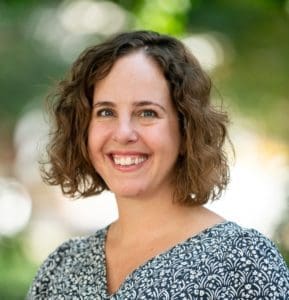Featured Therapist for September, Abby Bronstein
Every month, Council for Relationships features one of our staff therapists. This month’s Featured Therapist is Abby Bronstein, LSW, MFT. Learn more about her in the below interview!
 What makes you unique as a therapist and as a person?
What makes you unique as a therapist and as a person?
I have lived in Philadelphia for almost 20 years, in several neighborhoods. During that time, I’ve seen many changes, and even more things that haven’t changed. As a parent who is raising children in the city, I think it’s important to stay informed and interested civically and socially. I love to read (my favorite book this year is Girl, Women, Other by Bernardine Evaristo), and I have more podcasts in my queue than I’ll ever be able to listen to, especially now that my commute no longer involves leaving my house. I consider myself to be an ever-evolving feminist, engaged in social justice and working towards being anti-racist. I am sex positive and LGBTQ-A affirming. I will support your most authentic self.
Who is your ideal client?
The majority of my clients are people in their 20s-40s who are looking to be more comfortable in their own skin. Most are dealing with anxiety and depression that impact their relationships. They are often facing transitions, which can broadly include changing careers, starting a family, ending a relationship, parenting, gender identity, or sexual orientation. My clients are usually looking to learn more about the way they react to situations and making changes that enable them to feel more comfortable.
What is one piece of advice you would like to give people who may be struggling emotionally and would like to seek counseling, but may not be ready?
The world is scary right now. The Coronavirus pandemic against the backdrop of racism and violence is overwhelming. People may find themselves anxious or depressed about the uncertainty of what’s to come; These are reasons enough to come to therapy. Therapy can be for everyone. You don’t need to have “major trauma” to start.
I know that starting therapy can feel overwhelming. It’s a therapist’s job to go slowly and to recognize that it’s not easy work. I like to remind clients that it’s appropriate to talk with their therapist about what’s working and what isn’t. I view one of my primary responsibilities to a client as being attuned to feelings of discomfort and trying to help ease those tensions. Coming to therapy is a great example of self-care and, when you’re ready, it will be the exact right time to start. We’ll be here to support you.
Describe a typical first session with you.
I consider a first session our initial opportunity to get to know each other. I always explain my approach: I know you are a complex human who has a rich life filled with experiences beyond the thing that brings you into my office. I want to know about those parts of you, in addition to the thing you struggle with. As a systemic therapist, I recognize you do not exist in a vacuum and that you came to your beliefs and reactions as a result of how you grew up, and what your parents’ relationship was with you, with each other, and with their parents! The first session is an opportunity to get your questions about therapy, about my process, and about me as a therapist answered. My ultimate goal for my clients is to build safety, trust, and a feeling of being seen.
Abby Bronstein, LSW, MFT, is a staff therapist at our University City office; she currently sees clients via online therapy. To set-up an appointment, you can reach her at abronstein@councilforrelationships.org or 215-382-6680 ext. 7011.
